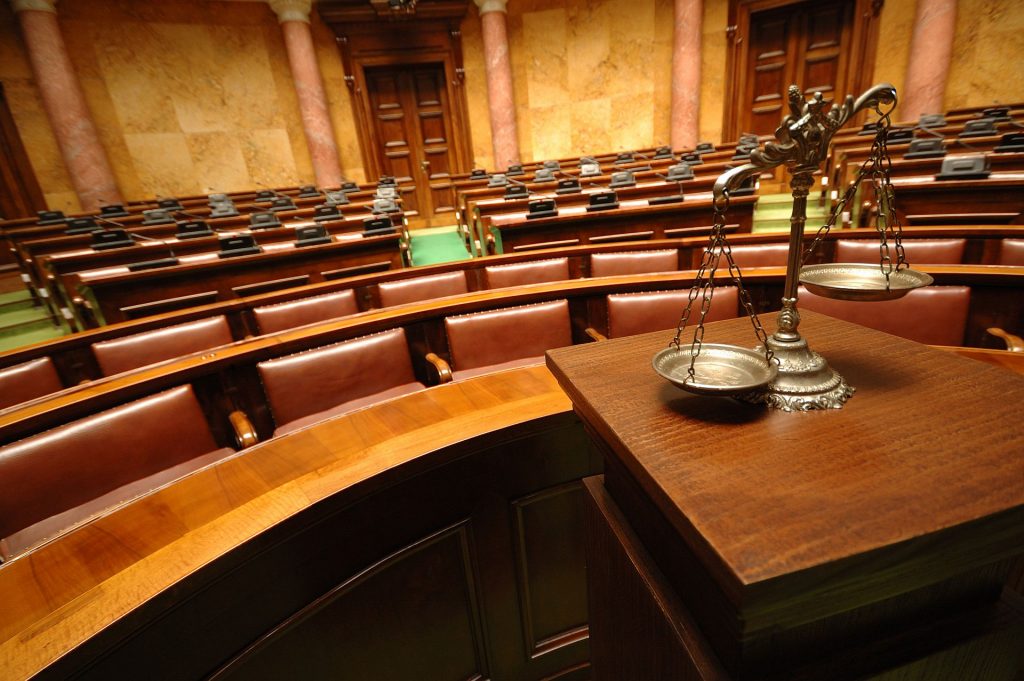LEGAL PROCEDURE OF FILING A CRIMINAL CASE IN INDIA
The society is vulnerable to crime. Law protects the society and deters criminal approach. There is an established procedure of law to file a criminal case under the Criminal Procedure Code, 1973.
I]. TYPES OF CRIMINAL TRIAL
According to the provisions of Criminal Procedure Code, 1973 there are three types of criminal trial:
(A) Trial of Warrant cases:
- Relates to offences like theft, Rape, Murder, Kidnapping, cheating etc which are punishable with death, imprisonment for life or imprisonment for a term exceeding two years and their trial procedure contained in sections 238-250.
- The Criminal Procedure Code, 1973 provides for two types of procedure for the trial of warrant cases by a Magistrate, viz. those instituted upon a police report and those instituted upon complaint.
(B) Trial of Summons cases:
- A summon case means a case relating to an offence, and not being a warrant case and are tried with much less formality where some proceedings are omitted to ensure swift process like cases relating to an offence punishable with imprisonment not exceeding 2 years.
- But a magistrate, after examining the case, does not find it fit to be called as a summons case, may convert it into a warrant case.
- The trial procedure prescribed for summon cases are contained in sections 251-259 of the code.
(C) Summary Trial:
- The trial procedure for these cases is contained in sections 260-265.
- Offences in a summary way are offences not punishable with death, life imprisonment, or imprisonment for a term exceeding 2 years. Theft under section 379, 380, and 381 of the IPC provided that the value of the stolen property is below Rs 2000 etc.
II]. STAGES OF CRIMINAL TRIAL IN INDIA
(i) Registration of F.I.R:
- Lodged under section 154 with its main object is to set the criminal law in motion.
- FIR means the information to the officer in charge of a police station in relation to the commission of a cognizable offence
- Also, it is first in point of time and on the ground and strength of which the investigation into an offence is commenced.
- It is not substantive evidence.
- In Hasib v. State of Bihar the court has held that it can be used to corroborate the informant under section 157 of the Indian Evidence Act, 1872, or to contradict him under section 145 of the act provided that the informant is called as a witness at the time of trial.
(ii) Commencement of investigation:
- It includes all the efforts of a police officer for collection of evidence:
- Proceeding to the spot;
- ascertaining facts and circumstances;
- discovery and arrest of the suspected offender;
- collection of evidence relating to the commission of offence;
- formation of opinion as to whether on the basis of the material collected.
- The investigation ends with a police report to the magistrate.
- It leads an investigating officer to reach a conclusion whether a charge-sheet has to be filed or a closure report has to be filed.
(iii) Framing of charges:
In Ravi Kumar v. State of Punjab [(2005) 9 SCC 315] the court has held that if a person is not discharged and trial shall begin by framing a charge (nothing but a specific accusation against the accused) and reading and explaining it to him (so that he knows what he is to force).
(iv) Conviction on plea of guilty:
The judge after framing of charges proceeds to take the ‘plea of guilt’ which is an opportunity to the accused to acknowledge that he pleads guilty and does not wish to contest the case provided the the plea of guilt is free and voluntary and the prosecution version if unrebutted- would have led to conviction. If both the requirements are met-then judge can record and accept plea of guilt and convict the accused after listening to him on sentence.
(v) Recording of the prosecution Evidence:
Examination of prosecution witness by the police prosecutor, marking of exhibits and cross examination by defense counsel.
(vi) Statement of the Accused:
Section 313 of the Criminal procedure code empowers the court so as to ask for explanation from the accused if any In order to give an opportunity of being heard and explain the facts and circumstances appearing in the evidence against him. Under this section, an accused is not administered an oath he may also refuse to answer the questions so asked.
(vii) Evidence of Defense:
In cases of accused not being acquitted by the court, the defense is given an opportunity to present any defense evidence in support of the accused. Also, the defense can also produce its witnesses and the said witnesses are cross- examined by the prosecution.
(viii) Final arguments on both the sides:
Once the public prosecutor and the defense counsel present their arguments, the court generally reserve its jugdement.
(ix)Judgement:
After application of judicial mind, the judge delivers a final judgement holding an accused guilty of an offence or acquitting him of the particular offence. Judgement is the final reasoned decision of the court, by a judge of such court, as to the guilt or innocence of the accused.

